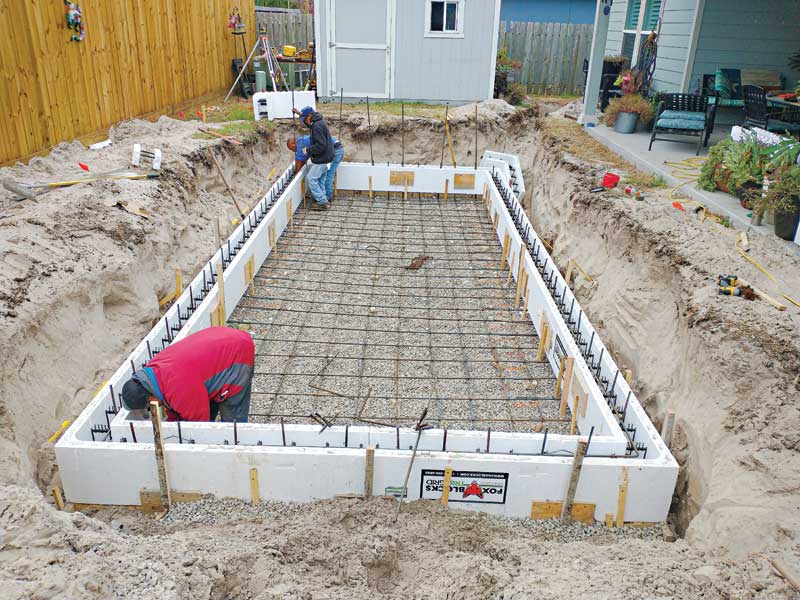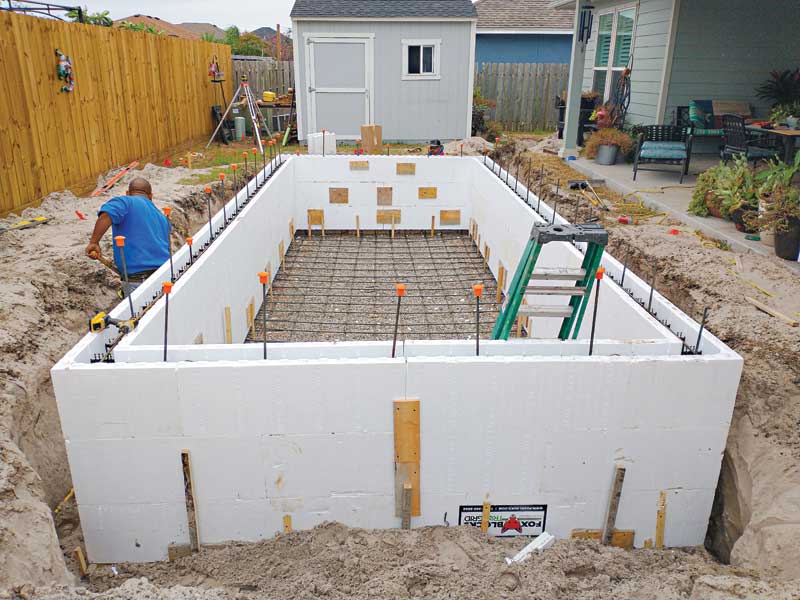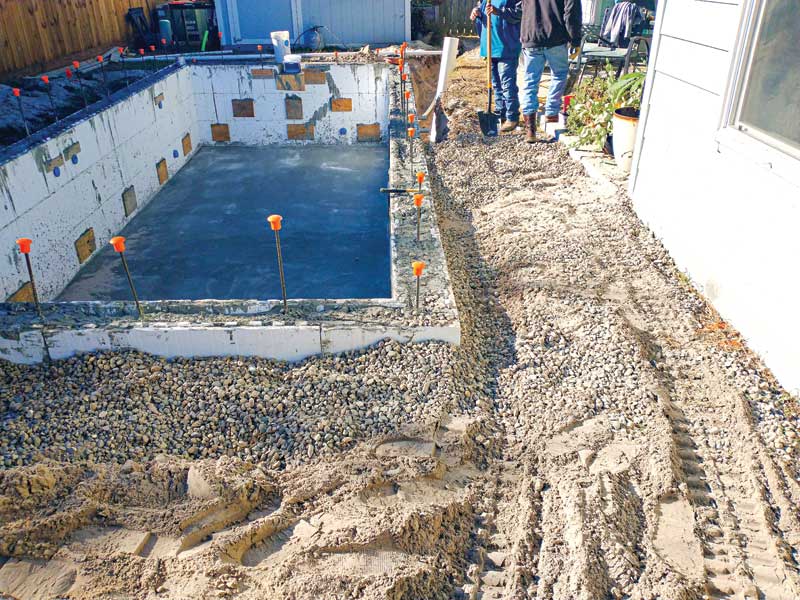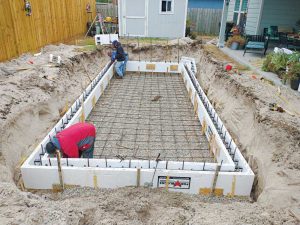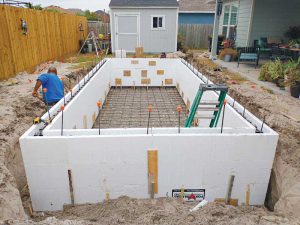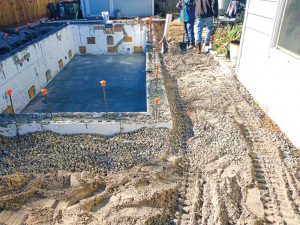“When we started using ICF systems to build our pools, we were immediately attracted to the insulation properties of the product as it keeps the pool water warmer longer for our clients, which is especially beneficial here in northern Quebec,” says Max Lavio, owner of Aqua Max Plus in Gatineau, Que. “The ICF system is more energy-efficient, which can save customers money on their energy bills.”
The formwork includes internal webs that provide a continuous insulation layer to eliminate thermal bridging and air leaks. The foam blocks come in various sizes and shapes and can be easily cut and customized on-site to create virtually any pool design.
The foam blocks are engineered with interlocking features, creating a tight and secure formwork for the concrete. This formwork incorporates internal webs, ensuring a continuous insulation (ci) layer to eliminate thermal bridging and prevent air leakage. These foam blocks are available in various sizes and shapes, facilitating effortless on-site customization to create virtually any pool design.
“They are very versatile and allow us to customize each pool to the backyard, regardless of the property’s size or shape,” says Lavio.
ICF construction benefits
Amid the pandemic, numerous builders started investigating new construction options due to supply chain disruptions, which made building pools very challenging—especially as demand skyrocketed. Pool builders, in their quest for alternative construction options, sought systems that were readily available in inventory. This approach aimed to mitigate the challenges posed by construction scheduling uncertainties.
“The ICF blocks are readily available. We order and have the blocks in two days—delivered directly to the client’s location,” says Lavio.
Companies like Aqua Max Plus were also looking for construction solutions with benefits they could easily sell to consumers.
“One of the features we promote to our clients is the [51-mm] 2-in. foam within the concrete as it has insulating properties which helps the water stay warmer longer than traditional pool construction, which is a huge benefit in Canada where the swimming season is short as temperatures drop quickly,” says Lavio.


